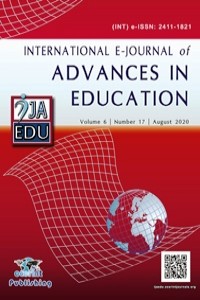THE IMPLEMENTATION OF SCIENCE-BASED MODULE IN IMPROVING STUDENTS' CRITICAL THINKING SKILLS AND LEARNING OUTCOMES IN STATE SENIOR HIGH SCHOOL IN SOUTHWEST ACEH DISTRICT
Abstract
Critical thinking skills and learning outcomes are two important components in the success of the learning process. Some research results showed that students' critical thinking skills and learning outcomes are below the average minimum standard, so learning innovations are needed to overcome these problems. Implementation of scientific-based modules is one of the innovations to improve students' critical thinking skills and learning outcomes. This study aims to improve students' critical thinking skills and learning outcomes through the implementation of scientific-based modules. This is an experimental research design with one group pretest-posttest. The research subjects consisted of 148 students from two high schools. The parameters measured in this study are critical thinking skills and learning outcomes. The data of critical thinking skills and learning outcomes were analyzed using parametric statistics which tested the difference between the two average pretest scores with normalized gain (n-gain) using a one-sample t-test. The relationship between critical thinking skills and learning outcomes was analyzed using correlation and regression tests. The results of the study showed that critical thinking skills increased by 65% and the learning outcomes by 88%. The strong correlation between critical thinking skills and student learning outcomes is indicated by a value of 0.85. It means that the implementation of scientific-based modules can improve students' critical thinking skills and learning outcomes. Besides, critical thinking skills also make a positive contribution to students' learning outcomes by 85%.
References
- Weissinger, P.A. (2004). Critical Thinking, Metacognition, and Problem-based Learning. Enhanching Thinking through Problem-based Learning Approaches. International Perspectives. Singapore: Cengage Learning.
Abstract
References
- Weissinger, P.A. (2004). Critical Thinking, Metacognition, and Problem-based Learning. Enhanching Thinking through Problem-based Learning Approaches. International Perspectives. Singapore: Cengage Learning.
Details
| Primary Language | English |
|---|---|
| Subjects | Other Fields of Education |
| Journal Section | Research Article |
| Authors | |
| Publication Date | September 14, 2020 |
| Submission Date | May 27, 2020 |
| Published in Issue | Year 2020 Volume: 6 Issue: 17 |
Cite
Cited By
Meedace: A 5E modified model to improve students' critical thinking skills
Salud, Ciencia y Tecnología
https://doi.org/10.56294/saludcyt20251990
Published and Sponsored by OCERINT International © 2015 - 2025
Contact: ijaedujournal@hotmail.com
International E-Journal of Advances in Education by IJAEDU is licensed under a Creative Commons Attribution-NonCommercial 4.0 International License. Permissions beyond the scope of this license may be available at http://ijaedu.ocerintjournals.org


